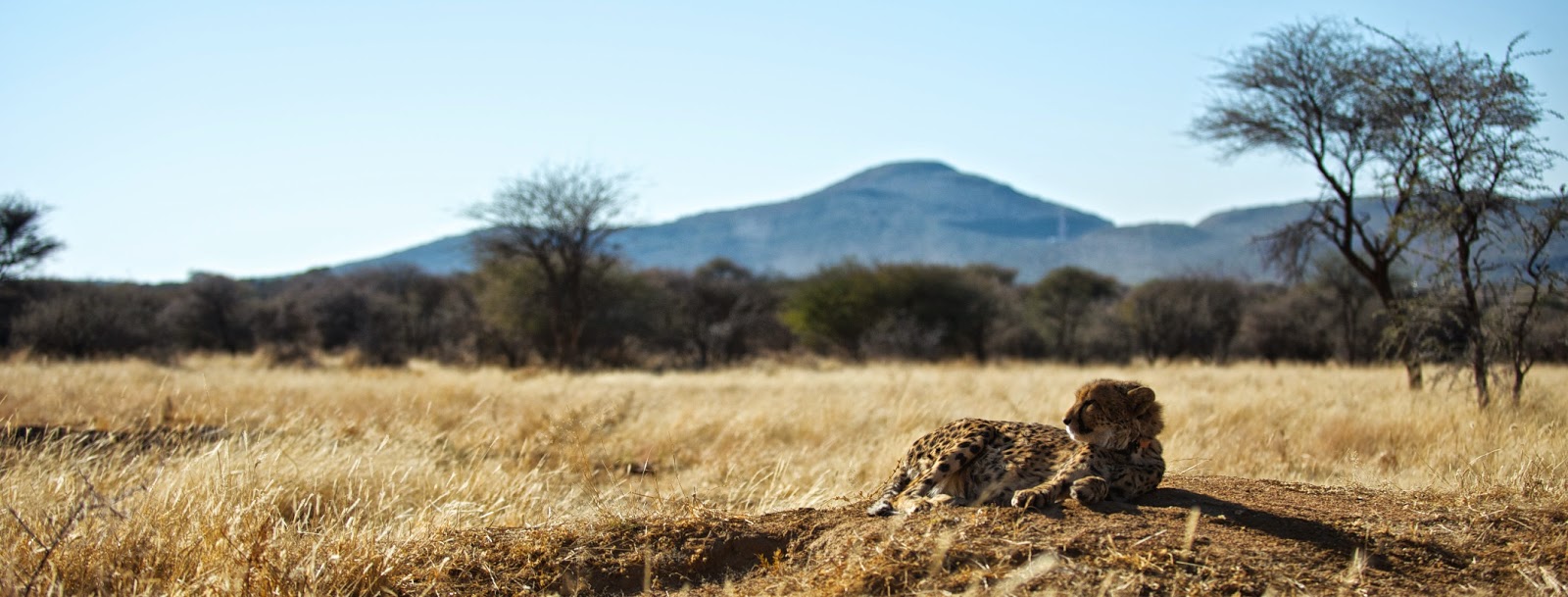Where has the time gone?
I blinked and missed it. My time at AfriCat in Namibia is almost at an end. I'm currently gate crashing Cheetahs to get the images I need for my book, and having a whale of time. But, equally, I'm waking up in the mornings with no energy. I'm exhausted, and I know the hard work is about to start.
In the time here in Namibia, I've seen some extraordinary things, meet some wonderful people, taken a few nice pictures, and hatched some cunning plans for the future with the folks at AfriCat.
What have I learned in my time here?
Cheetah get depressed too?
I feel some sympathy with them. I have a maintenance dose of a serotonin therapy which is keeping me out of depressions way. Working very hard with my brain, I think I'm making headway. But Cheetahs don't have therapists or psychologists to help them. however, they do have leading veterinary professionals to rely on. Adrian Tordiffe (and his wife Ashleigh) are two of the most wonderful folks you could meet. I think they are also two of the most wonderful people that the Cheetahs could meet (aside from the shaving, but that's another story).

Adrian is working very hard to understand some of the chemical changes that go on inside a Cheetah when their dietary needs are changed by captivity. Amazing work, that long turn will have a powerful impact on their (Cheetah) well being.
 Then there is Holly Gantz. Where Adrian is looking at one part of the puzzle, Holly, with her enthusiasm of the microbiological side of life, is viewing what goes on with Cheetahs at a microscopic level. Although conversations with her seem to travel towards Anthrax, and I'm not talking about the heavy metal band! Here's Holly looking up an old friend!
Then there is Holly Gantz. Where Adrian is looking at one part of the puzzle, Holly, with her enthusiasm of the microbiological side of life, is viewing what goes on with Cheetahs at a microscopic level. Although conversations with her seem to travel towards Anthrax, and I'm not talking about the heavy metal band! Here's Holly looking up an old friend!Then there were the surgeons who have innovated the process of operating on Cheetahs (and other animals) by using Keyhole surgery. The benefits of this in humans has long been known. But for wild animals, it has additional benefits of reducing the chance of post-operative infections and the accumulative time it takes to heal.
 ....and then there are the folks who spend their hard earned money to come to AfriCat to help and assist in the health checks. Typically a person goes on holiday to relax, but this fine folks work tirelessly to assist the vets in their work. This sometimes involved collecting flies, urine, anal gland samples, or if you weren't careful, wearing them!
....and then there are the folks who spend their hard earned money to come to AfriCat to help and assist in the health checks. Typically a person goes on holiday to relax, but this fine folks work tirelessly to assist the vets in their work. This sometimes involved collecting flies, urine, anal gland samples, or if you weren't careful, wearing them!It's a humbling moment when you step back, a review the experience over the last couple of weeks, when you realise how selfless people can be in a common goal of advancing our knowledge of a species to ensure its survival.
So then we arrive at the place, the location. AfriCat. A symbiosis between the tourist industry that supports the work pioneered at AfriCat through the visitors to Okonjima lodge. Funding from the tourism side underpins their existence as a centre of excellence for the study of predators and their future survival through education. The knowledge = power equation is very important here, with future generations and the tourists who enjoy their visits, gaining an insight into the complex world of the Cheetah, Lion (AfriCat North near Etosha National Park), Leopard, Wild Dogs, and Hyenas.
At every moment here, the complacency of the world at large, which damages the ecosystems, seems to be a shadow over the work. It drives, and motivates those who work at AfriCat at a punishing rate to deliver results, or to look for ways to raise the profile of the never ending fight to save these species. Even though, right now the Cheetah is listed as 'vulnerable' in the CITES red list, it doesn't take much for man to accelerate the climb up the list to extinction.
Is the investment in the education and innovative approaches with local farmers to remove the long term conflict between man and beast worthwhile? Don't take my word for it. Get on a plane and see for yourself. You never know, you might end up carrying a Cheetah....or collecting samples for analysis...





Comments
Post a Comment